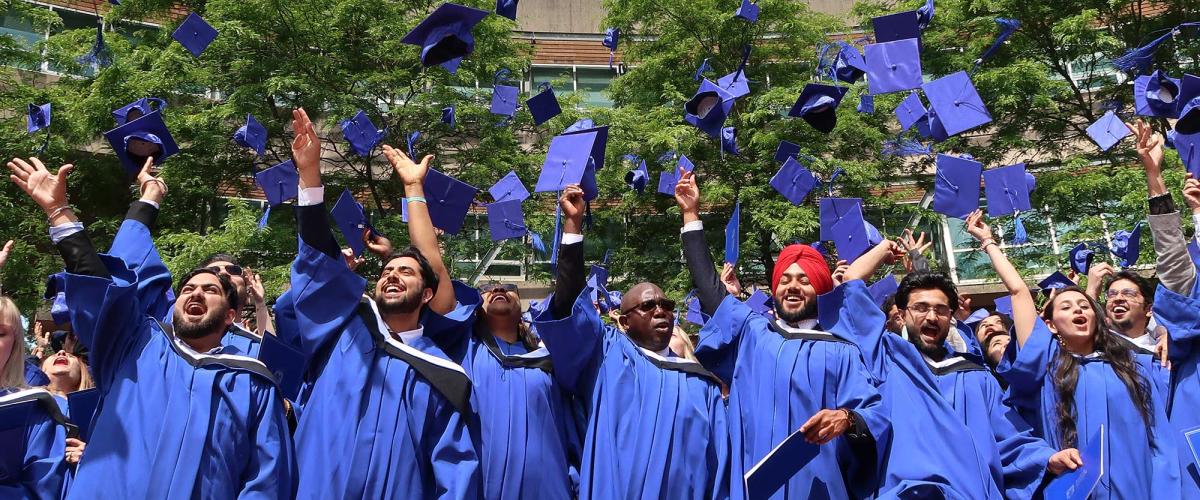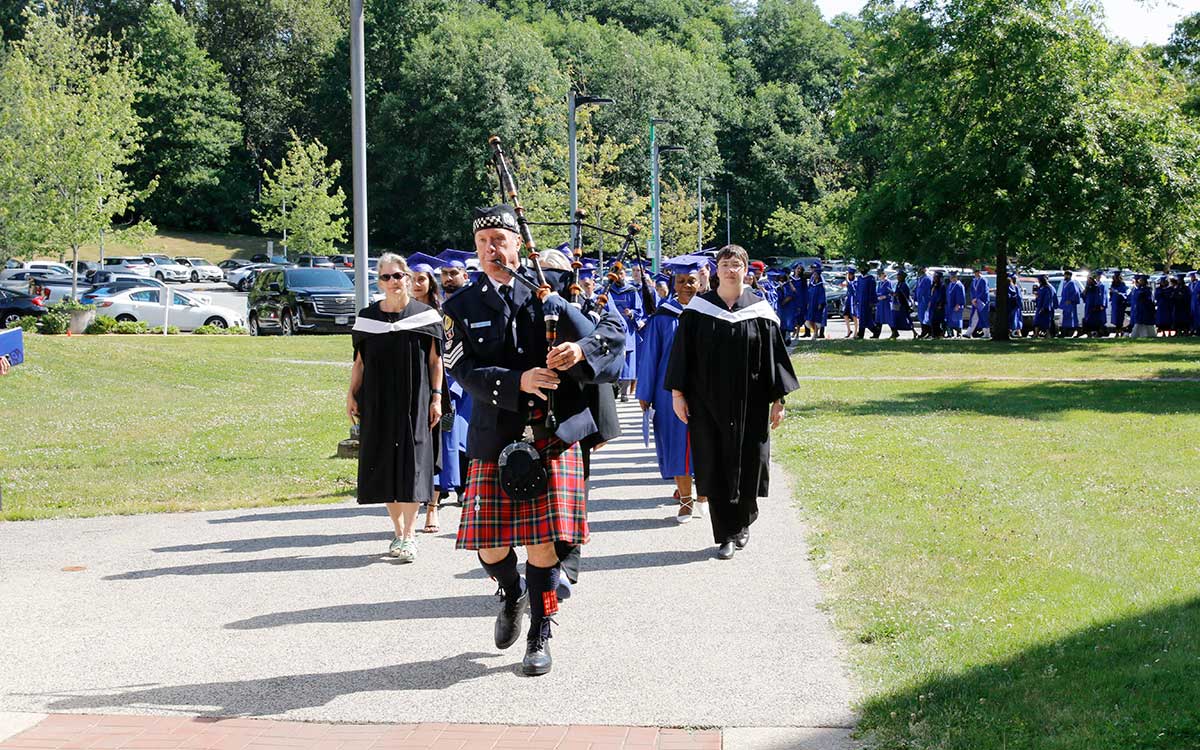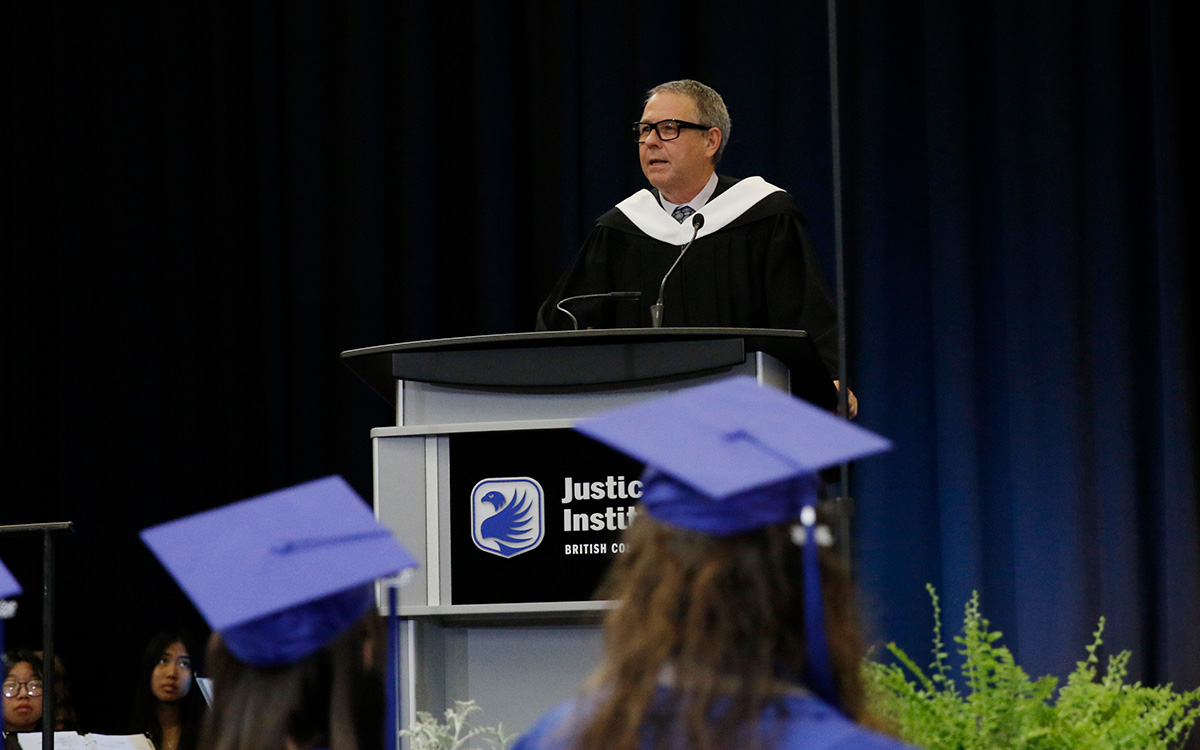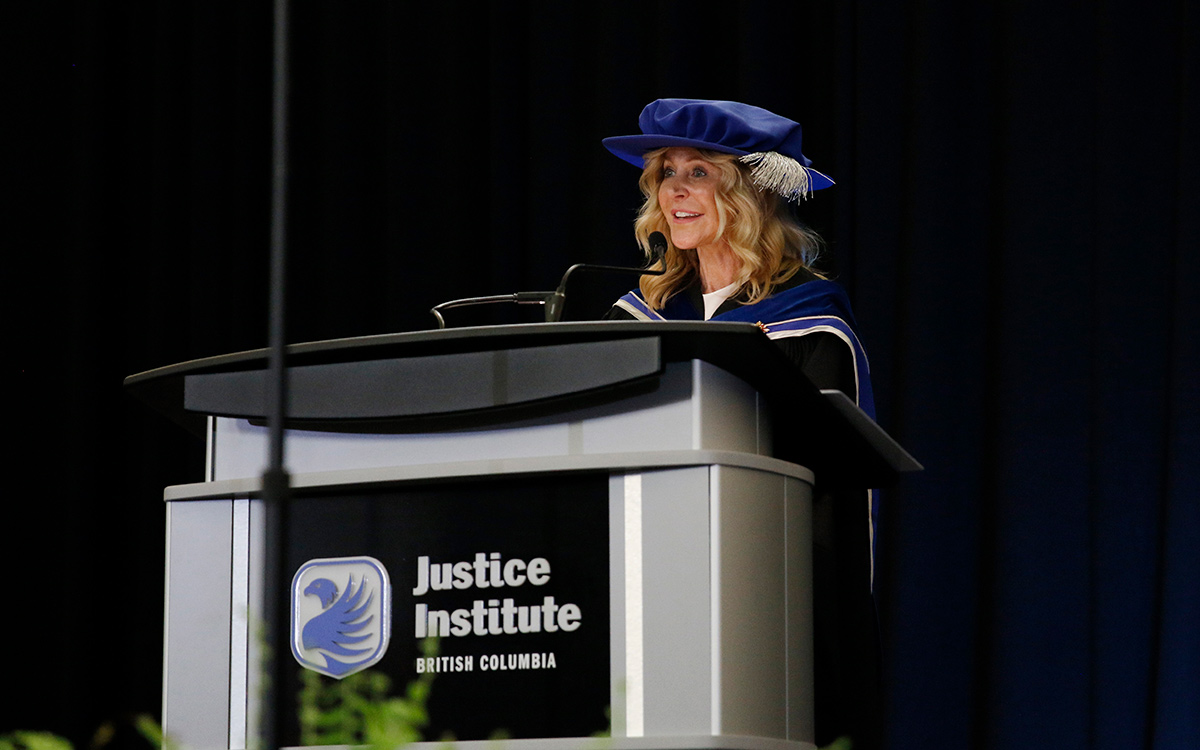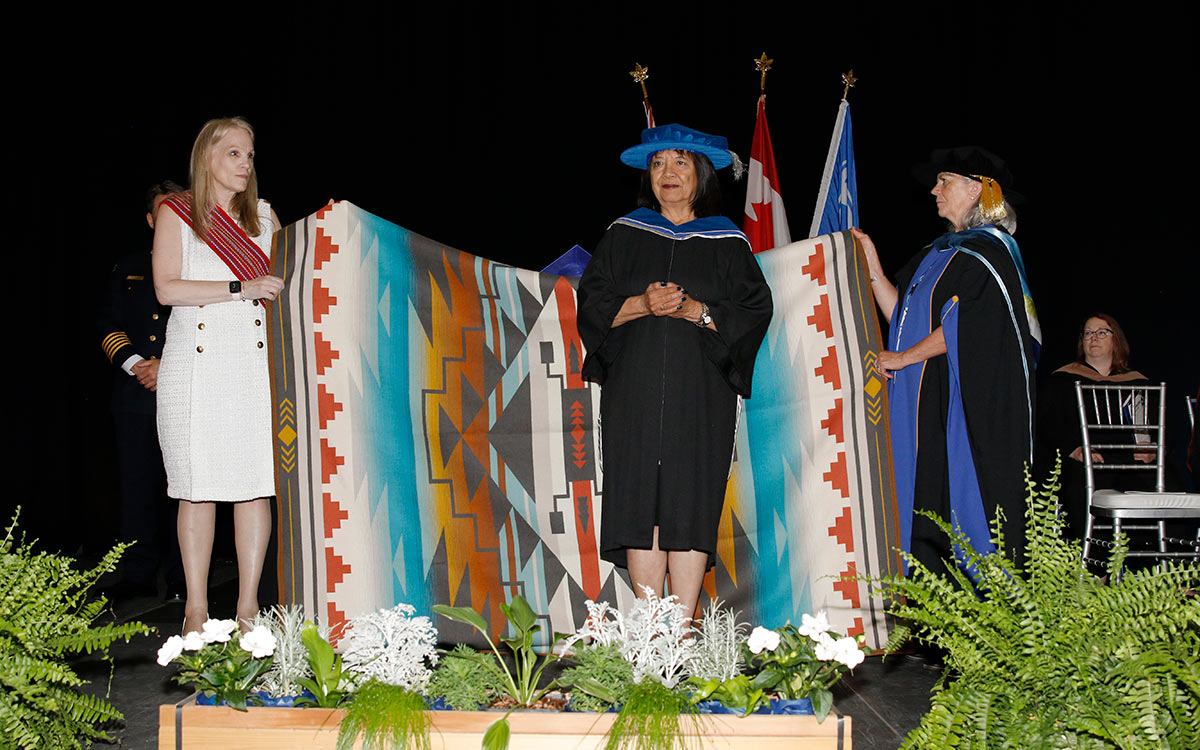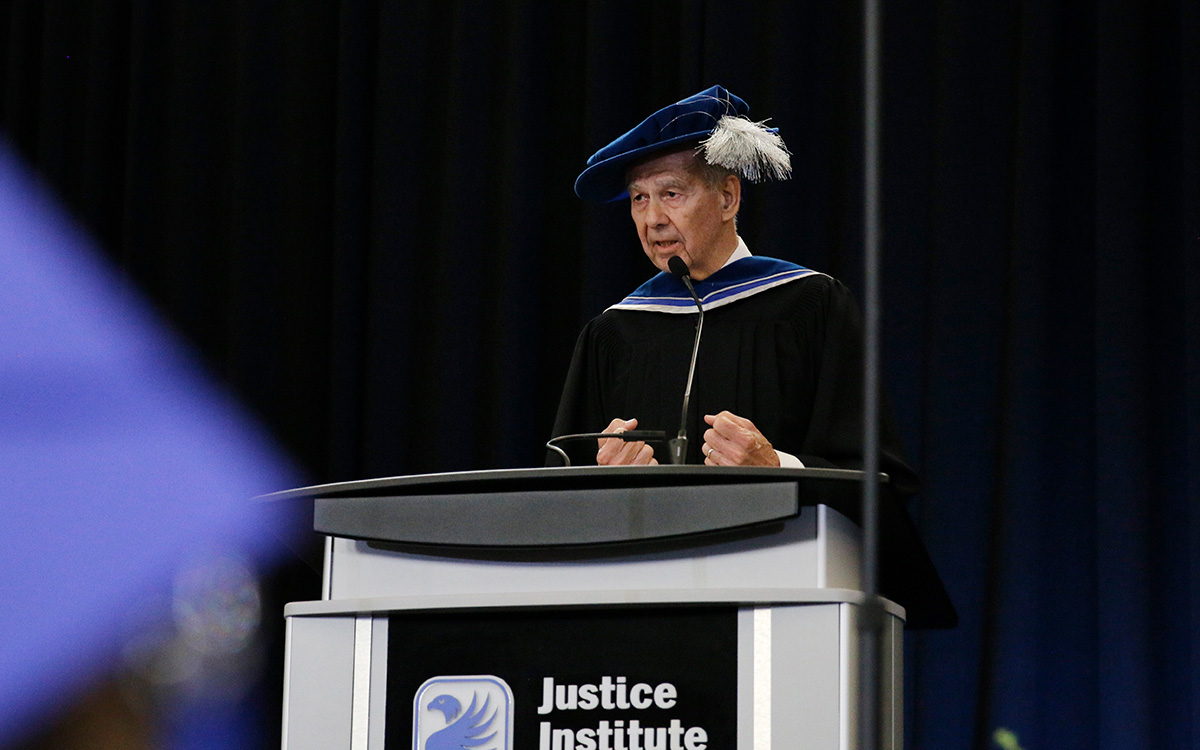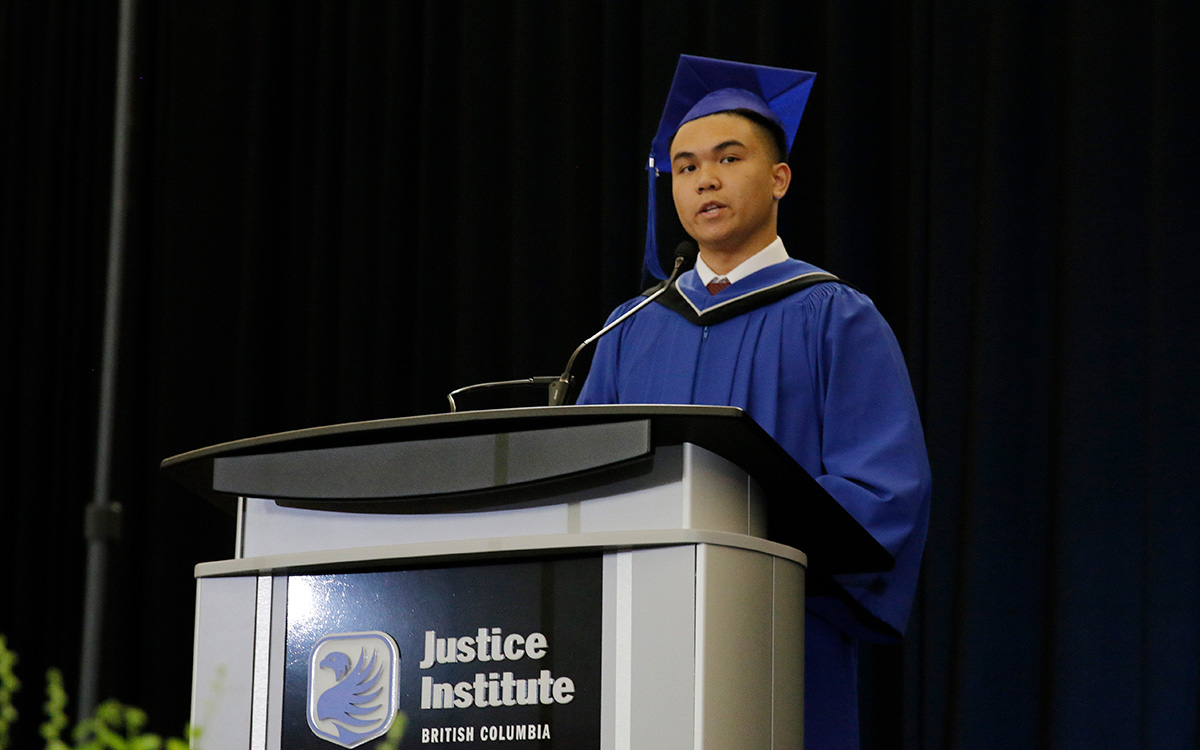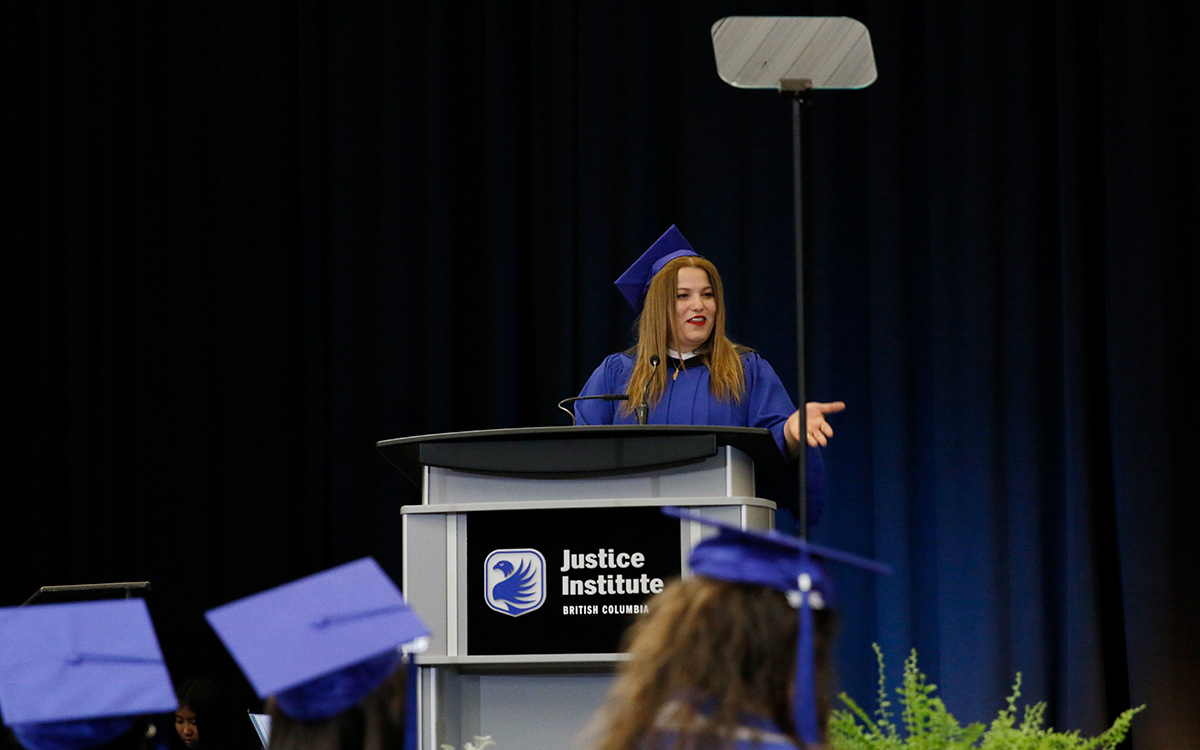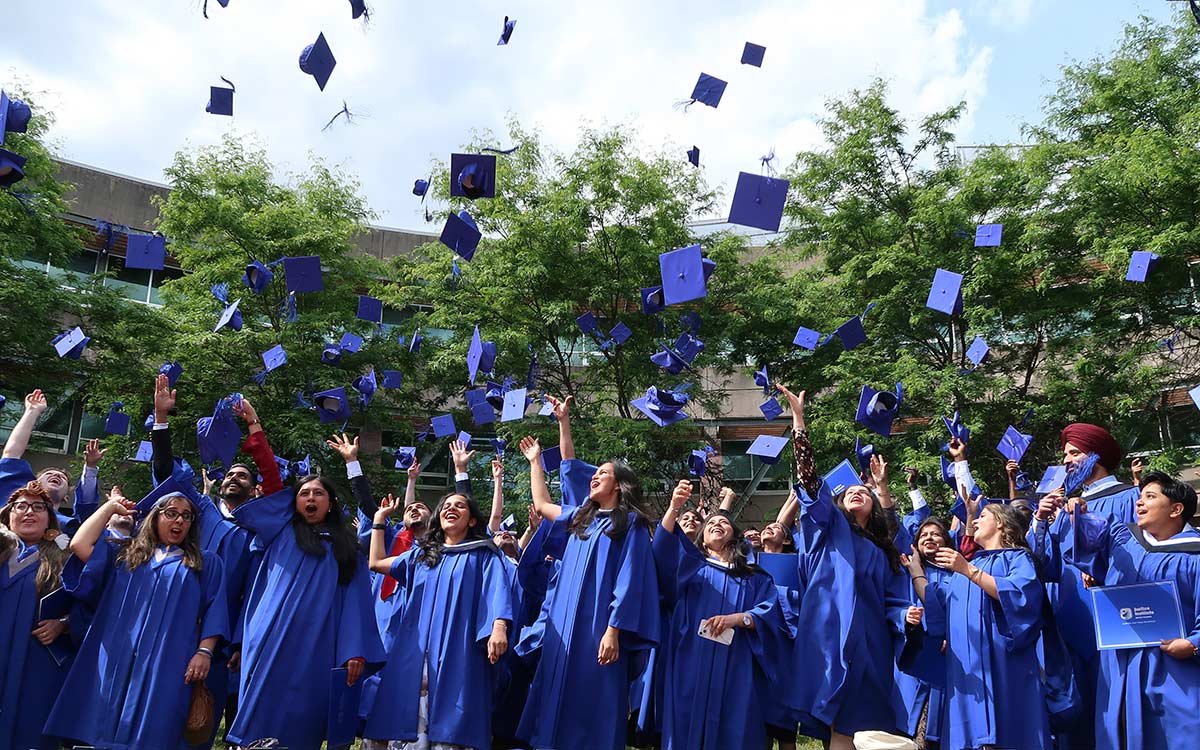With pride and cheers, JIBC celebrates around 820 future heroes dedicated to making communities safer and stronger
The Justice Institute of British Columbia (JIBC) celebrated the accomplishments of around 820 graduates during its convocation ceremonies on June 19, held at the New Westminster campus.
“At JIBC, our mission is to prepare students for some of the most vital roles in society. Whether your studies focused on law enforcement, paramedicine, firefighting, emergency management, or another essential field, one thing unites you all: the willingness to step forward when others step back,” Len Goerke, JIBC President and CEO, told the graduates.
“Graduates, the world needs you. It needs your training, your passion, your empathy, and your voice. Never doubt that your work makes a difference. It does. Every single day.”
Lieutenant-Governor salutes graduates
Her Honour, the Honourable Wendy Cocchia, Lieutenant-Governor of British Columbia attended the morning ceremony and addressed the graduating class, speaking of the importance of compassion in public safety professions.
“Please note, compassion is not optional, it is essential. It enables effective and calm response, builds trust in communities and supports vulnerable populations, especially those that are misunderstood often for their neurodiversity such as autism,” she said.
“JIBC has been a leader in preparing professionals for meaningful, compassionate interactions with all members of society … When I look out at the graduates, I am filled with hope.”
Indigenous leader, former JIBC President honoured
Two honorary degrees were conferred during the ceremonies – to Chief Rhonda Larrabee of Qayqayt First Nation, and former JIBC President and CEO Jack McGee.
Larrabee, recognized for her leadership and commitment to justice and Indigenous rights, told the graduates of her work to revive the Qayqayt First Nation, which saw its reserves closed down by the federal and provincial governments in 1916.
She said a simple action for all to take for Reconciliation starts with witnessing the ceremony and her speech. “All we ask is that you share this information with family, friends, co-workers and keep the conversation alive,” she said. “When everyone has learned and understands the truth, then we can build positive relationships with each other that benefits all of Canada.”
Jack McGee, who led JIBC for 13 years, shared highlights of that time as well as of his 32 years as a navy pilot in the Canadian Armed Forces, which included deployment during the Cuban Missile Crisis and being assigned to fly members of the Royal Family during their visits to Canada.
McGee stressed the importance of knowing in advance as much as possible about your equipment, the environment, your team, the situation, and any risks. “Training, repetition and practice prepares you not just for what may be anticipated but strengthens your mind to handle the unexpected,” he said. “Always pay attention to the details to better anticipate and to act. When time allows, always reassess to find improvements.”
“British Columbians are counting on you to help keep our communities safe, and mentally and physically well,” McGee said. “But balance is essential. Remember that you, too, need to care for yourself and your family. Only by looking after your own wellness can you help others.”
Student speakers give grads send-off
Speaking on behalf of the graduating class at the morning ceremony, Ricardo de Leon, graduating with a Bachelor of Law Enforcement Studies, called on his classmates to remember the true meaning of leadership as they step out of their comfort zones during their future careers.
“Leadership is not a position or a title; it is a sense of responsibility to make a difference in people’s lives,” de Leon said. “Being a leader doesn't require a 4.0 GPA, nor does it depend on age, colour, gender, or race. What matters most is having good character, integrity, respect, and compassion for others.”
Maram Suleiman, who successfully completed a Post-Baccalaureate Diploma in Disaster Management, spoke on behalf of graduates at the afternoon ceremony. Growing up in Jordan in a family descended from Palestinian refugees, she came to JIBC after more than a decade of experience working in the fields of human rights, refugee support, gender equity and youth development.
“At JIBC, I found not only a strong academic foundation in emergency and disaster management, but also space for reflection, growth, and healing. Courses like conflict resolution and Indigenous Truth and Reconciliation opened my heart and mind in new ways. I began to see my work and my place in it with greater humility, empathy, and responsibility,” she said.
To the graduating class she said, “Let us go forward not only as skilled professionals, but as listeners, advocates, and bridge-builders committed to safety, equity, and justice in every community we serve.”
